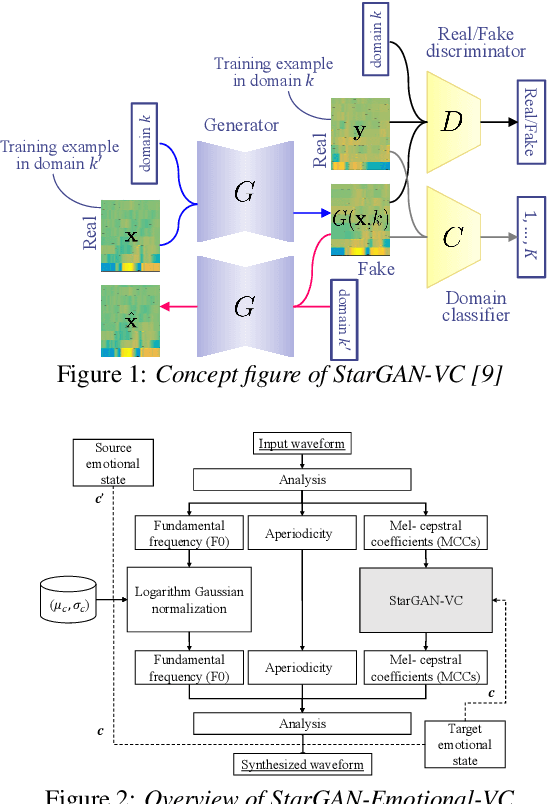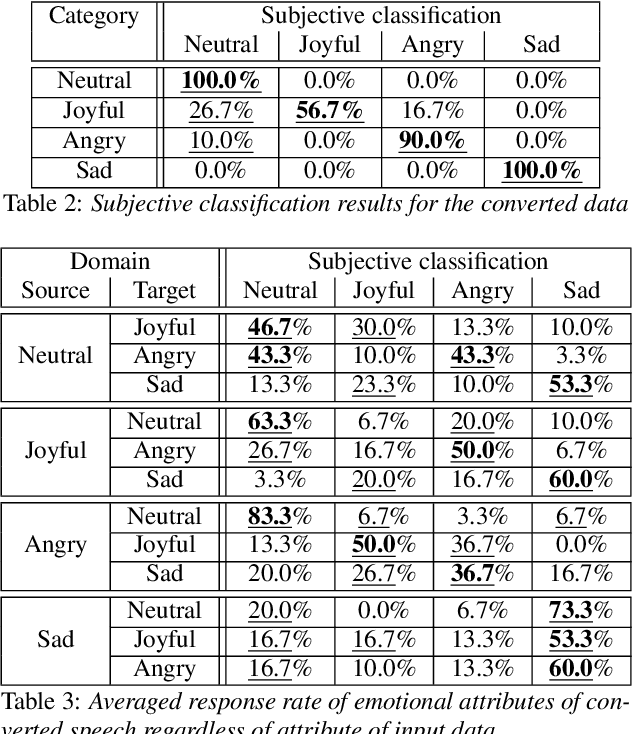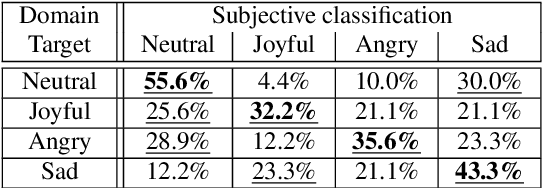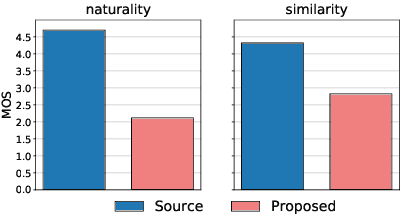Asuka Moritani
StarGAN-based Emotional Voice Conversion for Japanese Phrases
Apr 05, 2021



Abstract:This paper shows that StarGAN-VC, a spectral envelope transformation method for non-parallel many-to-many voice conversion (VC), is capable of emotional VC (EVC). Although StarGAN-VC has been shown to enable speaker identity conversion, its capability for EVC for Japanese phrases has not been clarified. In this paper, we describe the direct application of StarGAN-VC to an EVC task with minimal fundamental frequency and aperiodicity processing. Through subjective evaluation experiments, we evaluated the performance of our StarGAN-EVC system in terms of its ability to achieve EVC for Japanese phrases. The subjective evaluation is conducted in terms of subjective classification and mean opinion score of neutrality and similarity. In addition, the interdependence between the source and target emotional domains was investigated from the perspective of the quality of EVC.
 Add to Chrome
Add to Chrome Add to Firefox
Add to Firefox Add to Edge
Add to Edge